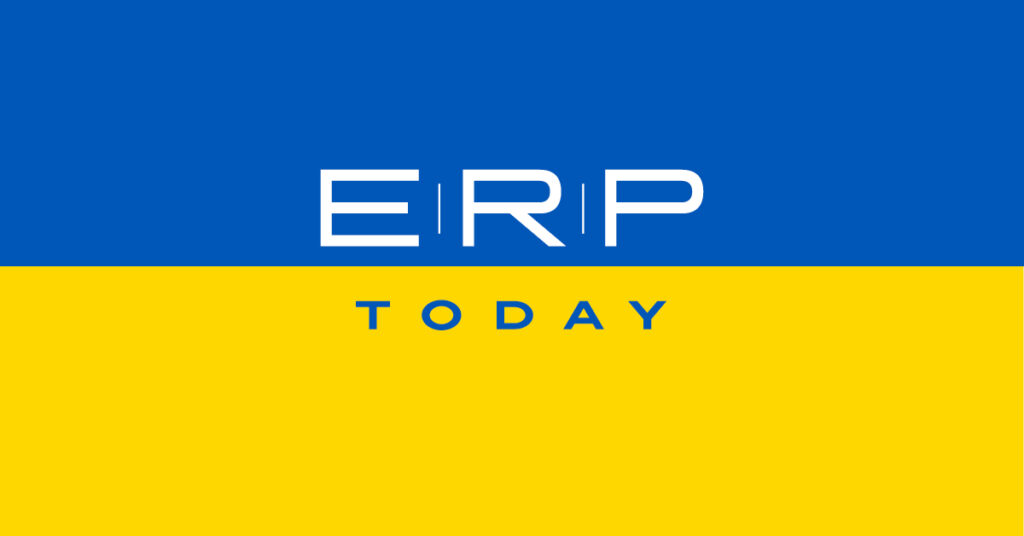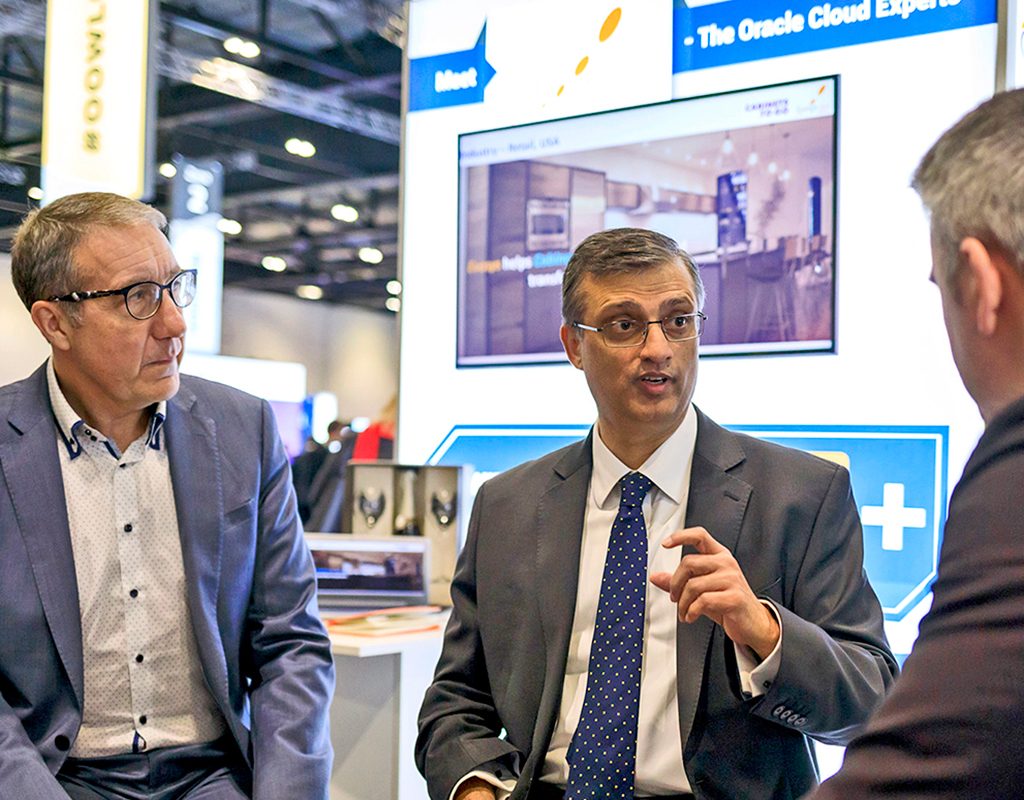Getting the band back together is not always a prudent idea. How many times have we seen legends reform in their twilight years only to undo their previous good work and rewrite their legacy with a failed attempt at making it again? Pink Floyd (Momentary Lapse of Reason), The Pixies (Indy Cindy), Guns ‘N Roses (Chinese Democracy) and Queen (The Cosmos Rocks), to name just a few, have all tarnished their position in history with comebacks that were a pale comparison to their heyday.
There are exceptions of course. Bowie aged like a fine wine after his evolution from Ziggy Stardust. The Detours reformed into the legendary, The Who. Even Take That, post Robbie, became credible following their unlikely comeback. There are plenty of other things that are better the second time round too – but that’s a conversation for another day.
So how does this music analogy translate into the tech world? Well, one of the industry’s most recognisable characters is starting over in an attempt to recreate some of the magic he enjoyed with his previous business, Certus Solutions.

Mark Sweeny describes himself as a serial entrepreneur and founded Certus along with business partner Tim Warner in 2007. They were right at the start of Oracle’s Fusion journey and can rightly be described as trailblazers in early cloud history. Certus was small but thought big and it won some incredible deals: most notably in the public sector with the ONS, HM Treasury and the Home Office.
Certus was acquired by Accenture in 2018 and after a short lived union Sweeny departed to enjoy the spoils of his success.
As regular readers of ERP Today will know, Sweeny writes a column for us so I did ponder whether that would be the end of his involvement in the sector and if we would need to find a new contributing editor. To my surprise, Sweeny and Warner were already hatching a plan for a comeback with a new proposition, so I decided we should find out if their sequel will be more Godfather or Karate Kid in a no-privileges interview.
Sweeny and Warner are a good double act. Sweeny has all the traits of a typical entrepreneur – he can smell a deal, instinctively knows which way is up, has plenty to say and has learned over years of hard work that effort equals reward. Warner is more measured and thoughtful and brings nearly 40 years of IT, systems and Oracle experience to the table. They created a winning team back in 2007 and there is no reason to suspect that they can’t repeat the success of their previous venture with their latest offering, de Novo Solutions.
Sweeny was at pains to point out during our interview that de Novo is not a rebirth of Certus and the proposition is built on different foundations, and said: “Let us be really clear, de Novo is not about recreating Certus.”
Of course, the motivation for doing the same again would be tough to muster and the enterprise tech landscape has matured over the last 14 years making it harder to get in at ground level. But there are some similarities between the opportunity that Certus capitalised on and those which are presented by the experience economy. Certus was literally the first cab off the rank with Oracle Fusion (in fact when Sweeny first started selling the solution it was barely built). That gave Certus some great first-mover advantage and it followed that once they had one successful customer under their belt the next Oracle customer wanted to work with an outfit that had some experience with the technology.
The same logic can be applied to the way that ServiceNow (de Novo is a ServiceNow partner – more on this later) has started to disrupt the enterprise tech space with their workflow platform which improves user experience for both customers and employees. Although parts of the ServiceNow proposition are still, in my opinion, immature and in need of refinement, there is no doubt that their meteoric revenue growth is set to continue and there will be an aggressive bun fight between the SIs to grab as much of the action as they can. ServiceNow recently reported quarterly cloud revenues of $1.5bn – that’s more than Workday and not far behind Oracle – with a growth rate of 35 percent annually. The smart money is on ServiceNow to become increasingly dominant and wrestle even more transformation dollars away from the traditional tech vendors. (You can read more on this over the page in Josh Bersin’s ServiceNow analysis).
Commenting on ServiceNow’s trajectory, Sweeny said: “What I like about ServiceNow is not where it is today, but very much its direction of travel and the possibilities it opens up. ServiceNow is still in its infancy and its growth plans are phenomenal. Equally, you only have to look at the strategic acquisitions the company is making, the product is on the same journey as we saw with Oracle way back in 2010. Remember, ServiceNow is not trying to be an ERP system and equally Oracle is evolving also and that’s really exciting to see – Digital Assistant and Oracle Journeys – they just kill Workday and SAP in my opinion. So, what could you do if you combine these vendor solutions? The possibilities are endless.”
The momentum created by ServiceNow has piqued the interest of the big SIs with Accenture, Deloitte, PwC and KPMG already making strong plays in this space. There is also a healthy pipeline of smaller niche players trying to capitalise on the opportunity and de Novo is betting it can be one of the winners. Unlike the Oracle or SAP ecosystems, which are saturated with partners all looking for their piece, the ServiceNow community is still relatively small. That means getting a break with ServiceNow (provided you have some credentials) is not as challenging as it would be to start up and try to take on the established players in more mature markets.
Coming back to Sweeny’s comment about not redoing Certus, I understand that the new team will be keen to make a fresh mark, but my take is that both he and Warner would be delighted to replicate the success of Certus albeit through different means.

Remember, ServiceNow is not trying to be an ERP system and equally Oracle is evolving also and that’s really exciting to see – Digital Assistant and Oracle Journeys – they just kill Workday and SAP in my opinion. Mark Sweeny
What is the de Novo proposition?
De Novo has already achieved Oracle and ServiceNow partner status and it will be no surprise to anyone that their plan is rooted in their experience with Oracle cloud technologies. When I asked Sweeny how he would describe their USP, he said: “Our proposition is three-fold: firstly, pioneer into the new era of the experience economy and create digital end-to-end vertical solutions using both ServiceNow and Oracle cloud technologies. Secondly, making sure existing customers that use these technologies maximise their return on investment by using the innovation that is being constantly delivered and they are paying for. And finally, bringing real commercial innovation to the table, where an element of our fee is at risk but also the reward is linked to the value we generate for the organisation over time.”
Fee structure has been a bugbear of mine since I started writing about ERP and the industry is long overdue a shake-up of how consultancies earn their crust. As Andy Bird writes elsewhere in this issue (referencing an article I wrote on the subject two years ago) what customers are willing to pay for is changing and the role of the SI or consultancy has evolved.
ERP consultancy fees used to be calculated by the number of days estimated to capture requirements and configure the system, multiplied by the number of consultants required to complete those tasks, plus a huge whack of expenses. Customers simply won’t tolerate that today and all consultancies, whether it’s a new start-up like de Novo or one of the global powerhouses, have to structure their fees so they are directly linked to value creation.
There is, however, a fly in the value-led ointment in the form of lift and shift outfits that undercut the majority of would-be partners and deliver sub-optimal solutions to naïve customers. Imagine you are about to invest £10m in a new Oracle solution and one partner offers to implement the solution for £6m while another says they can do the job for £3m. The pricier consultancy may offer a whole heap of value-add activity that the client would love to have – and will ultimately deliver far higher benefit over time – but money talks and £3m talks loudly when you are already ploughing millions into the technology.
To my mind any technology partner that offers to support a customer through an implementation of Oracle, ServiceNow or any other tech product for that matter, should structure their fees in such a way that they are paid over time, as value is created and the customer realises a return on its investment. If Sweeny and Co can find a way to make this work, where they have real skin in the game, it could be a gamechanger but there are significant hurdles to navigate. The likes of Evosys, who will likely compete on many similar-sized deals, price their projects very competitively and purchasing decisions by all but the savviest of customers are often led by cost rather than value – especially in the lower and middle market.
Commenting on this, Sweeny said: “All I see now are partners, at best, catching up to where Certus was in 2018 whilst the technology, propositions and what the customers are looking for has moved on. If you don’t constantly evolve, your service propositions lose relevance with customers and this market is one that can turn against you very quickly. As for commercial innovation, there isn’t any beyond fixed price.”
I asked Warner how de Novo would differentiate itself in a crowded market where customer relationships are often owned by an incumbent partner. He said, “Our proposition is different. Most players in the implementation market are siloed by product and follow the long-established methods of implementation. The Oracle SaaS products are now very mature and most SIs follow a standard path to implementation. Indeed, it might be difficult to differentiate between them. We are different and are focussing on the experience from the outset the users have in using systems in their day-to-day work whilst also bringing innovative commercial models to the table where we get rewarded from the value our solutions derive.”

The Oracle SaaS products are now very mature and most SIs follow a standard path to implementation. Indeed, it might be difficult to differentiate between them. Tim Warner
ServiceNow as a differentiator
Despite their history with Oracle technology, de Novo is positioning itself as a dual-vendor consultancy. Their challenge will be two-fold; identifying existing Oracle cloud customers that are dissatisfied with the incumbent partner and are persuaded by the ServiceNow offering. And, finding the remaining on-premise customers that still want to move to SaaS and winning that business competitively. While some would tell you that the addressable market for new SaaS customers is infinite, I’d argue that the growth in on-prem customers deciding to upgrade E-Business Suite and move their infrastructure to the cloud is stronger than ever.
When I put the challenges to Warner and asked where their sweet spot would be, he said: “The market we are targeting is much larger than just the addressable market for Oracle Cloud implementations and we think our proposition is significantly different from others. The world is full of multi-faceted solutions: we want to make sure we offer our customers the very best solutions and if that means using multiple system solutions then so be it. The success of business applications don’t just lie in the functionality of a system, it is also about user adoption. We plan to build solutions using ServiceNow and Oracle that give the user the ‘experience’ that makes them want to use their applications because they can tangibly see the benefits.”
My take is that most customers buying ServiceNow already have a relatively mature ERP solution and use ServiceNow to augment and improve their core applications – it follows that they would also have an incumbent Oracle partner supporting them. It is also unlikely that a customer with legacy ERP will find the same value in ServiceNow as a customer that already has a solid digital platform. That said, there are certainly enough Oracle customers that have invested in SaaS over the last 10 years which aren’t maximising that investment and de Novo should have no problem picking off those that have been sold short.
Credentials and success
So how is de Novo going to beat the likes of Evosys, Inoapps and Namos in the middle ground? And can they seriously compete with Deloitte, Accenture and Hitachi at enterprise scale?
Warner said: “Our management team is highly experienced. We have experienced the cycle of start-up, growth, expansion and sale. We have also experienced the bad times. It wasn’t all plain sailing in the early days of Certus! So, we believe we are entering this market with our eyes wide open to all the potential ups and downs and how to deal with them. Our starting point with de Novo is much more advanced than when we started Certus, and naturally we have greater access to financial capital than we did the first time around.”
I asked Sweeny to put a little more meat on the bone, and he said: “We have brought the ‘A’ team back together and we make no bones about this: the individuals that make up the de Novo executive team are some of the most experienced consultants there are.”
My takeaways
Mark Sweeny and Tim Warner have proved they know what it takes to build a successful business in this space: Certus wasn’t just a commercial success for the shareholders, it genuinely delivered ground-breaking projects for some of the most important organisations in the UK. I am a big advocate for SMEs and, in my opinion, companies that have something to prove and mouths to feed are usually the source of the greatest innovation. There’s no reason to think that de Novo can’t replicate the success of Certus and it will be interesting to watch how their proposition fleshes-out over the coming months.
That said, there are going to be several challenges to navigate: Sweeny doesn’t sell on price and regularly comments on those who ‘race to the bottom of the rate card’. Whilst I fully support the notion, the simple fact is that cash-strapped customers want a deal and de Novo could find itself caught in no-man’s land between those that will deliver cheap implementation and the global SIs that come with all the kudos. The good news is they won’t need to sell to everyone to be a success. If they can find a niche of customers that recognise the value of a long term partner that will invest alongside them, they could have the perfect blend of the leading application and infrastructure platform coupled with a workflow solution, that I am betting, we will all be using one day soon.





